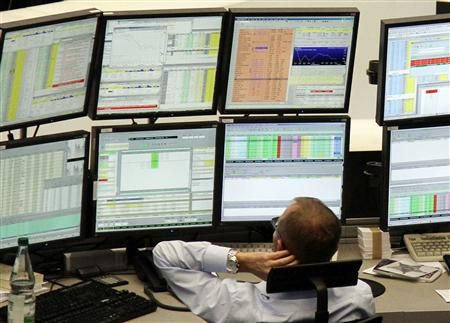European Markets Fall Ahead Of US Fed Meeting

Most of the European markets fell Thursday as investors remained watchful waiting for the U.S. Federal Reserve to announce stimulus measures to revive the economic growth.
The French CAC 40 index was down 0.39 percent or 13.74 points to 3530.05. Shares of Safran SA dropped 0.78 percent and those of Peugeot SA declined 1.12 percent.
London's FTSE 100 index marginally fell 0.07 percent or 4.31 points to 5777.77. Shares of Bunzl Plc declined 1.10 percent and those of Burberry Group Plc dropped 0.65 percent.
The German DAX 30 index rose 0.11 percent or 8.30 points to 7351.83. Shares of Daimler AG advanced 0.45 percent and shares of Volkswagen AG climbed 0.31 percent.
Spain's IBEX 35 was down 0.33 percent or 26.10 points to 7966. Shares of Repsol SA fell 0.82 percent and those of Bankinter SA dropped 0.53 percent.
Investors are focusing on the Federal Open Market Committee (FOMC) meeting in which they are expecting quantitative easing measures to be announced by the Fed to revive the economic growth. Following Fed Chairman Ben Bernanke's speech at the Jackson Hole symposium, market participants have shifted expectations for more monetary accommodation by the Fed.
"We believe the FOMC will extend its forward guidance on the level of the Fed funds rate and announce a new large-scale asset purchase program at its September 13th meeting," Credit Agricole said in a note.
The announcement of a combination of large-scale asset purchase and other non-traditional monetary policy programs could help to lift the market confidence. It will offer the much needed support to markets which have been affected by the faltering economic growth in the U.S. and deepening debt crisis in the euro zone.
The size and length of the expected asset purchase program will also be affecting the market sentiment. Market participants are hoping that the FOMC might opt for an open-ended program with a monthly purchase of $50-$60 billion in security purchases that would continue until the committee believes that they are no longer needed.
© Copyright IBTimes 2025. All rights reserved.





















